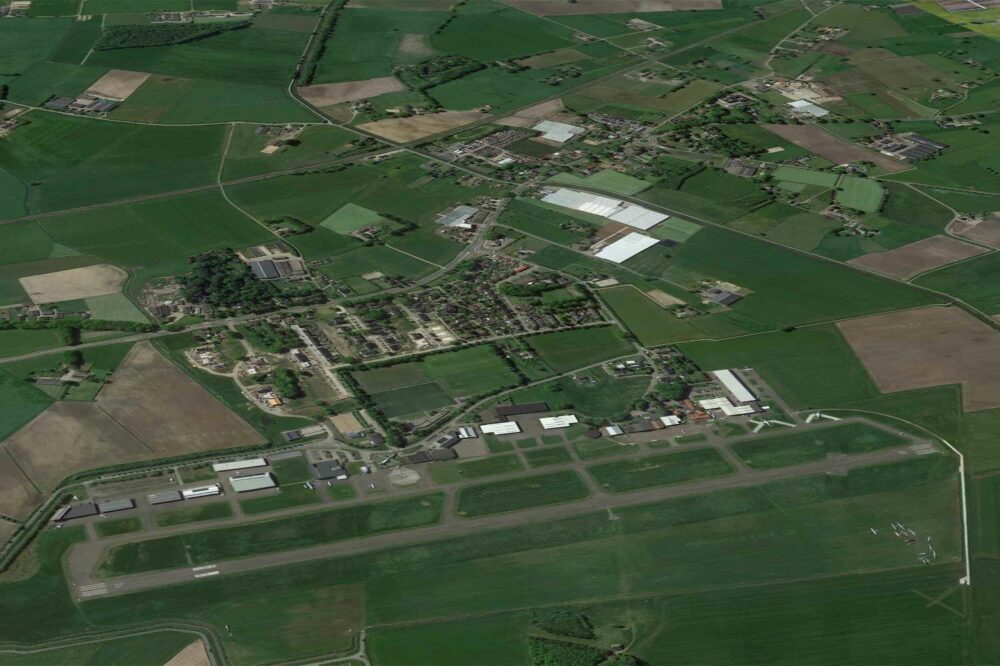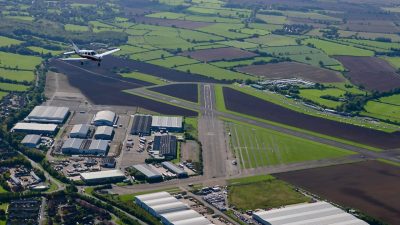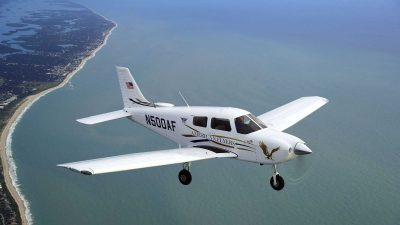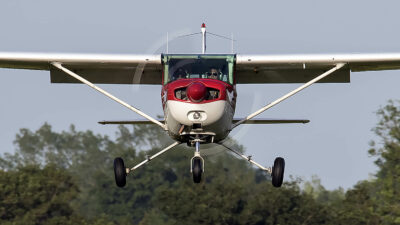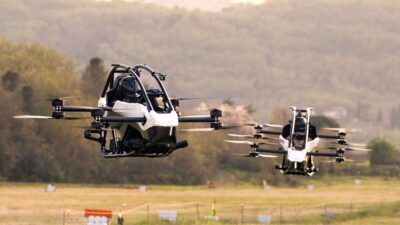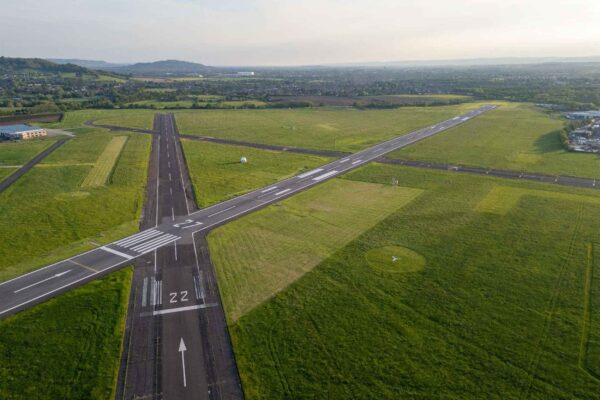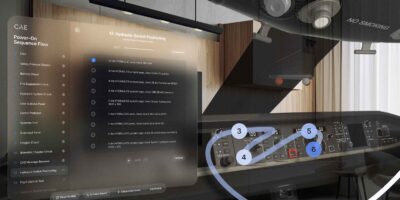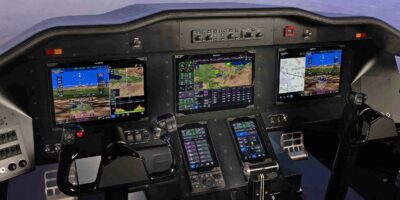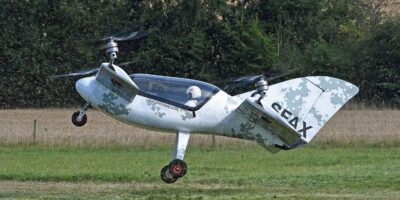Teuge International Airport, about 80km east of Amsterdam, is fast becoming the centre for electric aviation in the Netherlands.
The latest firm to move there is Cormorant SEAplanes which is working on an electric 8-seat amphibious aircraft with a focus on sustainabioity, not just in its power unit but also the construction materials, supply chain, and infrastructure required to operate the aircraft.
Cormorant is moving into the hangar of E-Deck, an initiative of Dutch entrepreneur Evert-Jan Feld where an ‘E-Campus’ has been developing. Cormorant says it ‘fits seamlessly into the ecosystem at Teuge’.
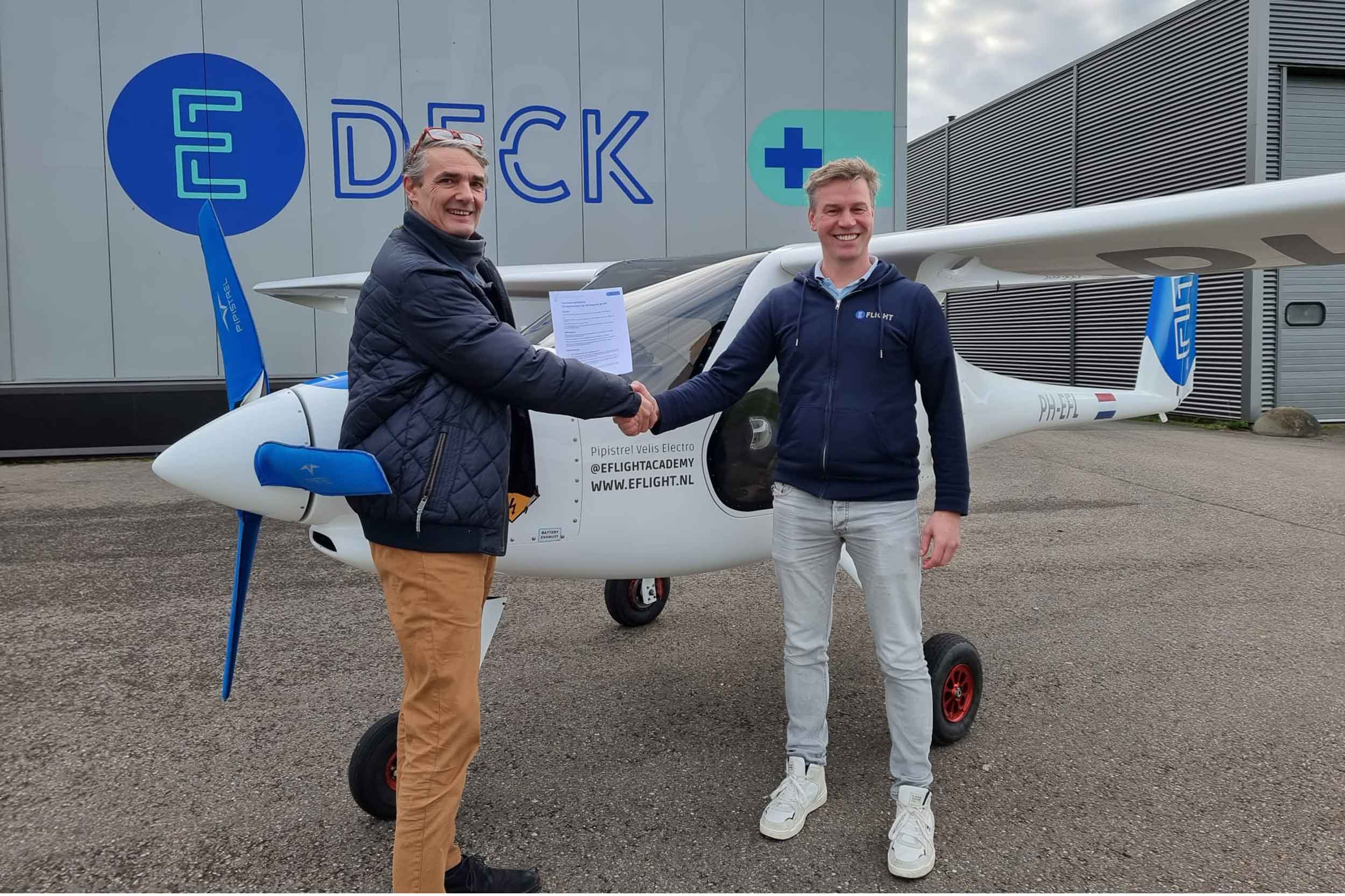
Cormorant’s Chris Rijff, left, with E-Deck’s Evert Jan at Teuge Airport
Chris Rijff, Cormorant’s chief designer and CEO, said, “Cormorant has been designed as an amphibious aircraft, allowing it to operate from water and land.
“The aircraft is powered by a so-called ducted fan situated in the centre of the airframe. The design uses an automated five-blade fan system developed for the RFB [Rhein-Flugzeugbau GmbH] Fan Trainer, a military training aircraft developed in Germany in the last century.”
Cormorant is powered by two electric motors of 260kW/h (349hp) each, and is being designed with a maximum speed of 460km/h (248 kt) in mind.
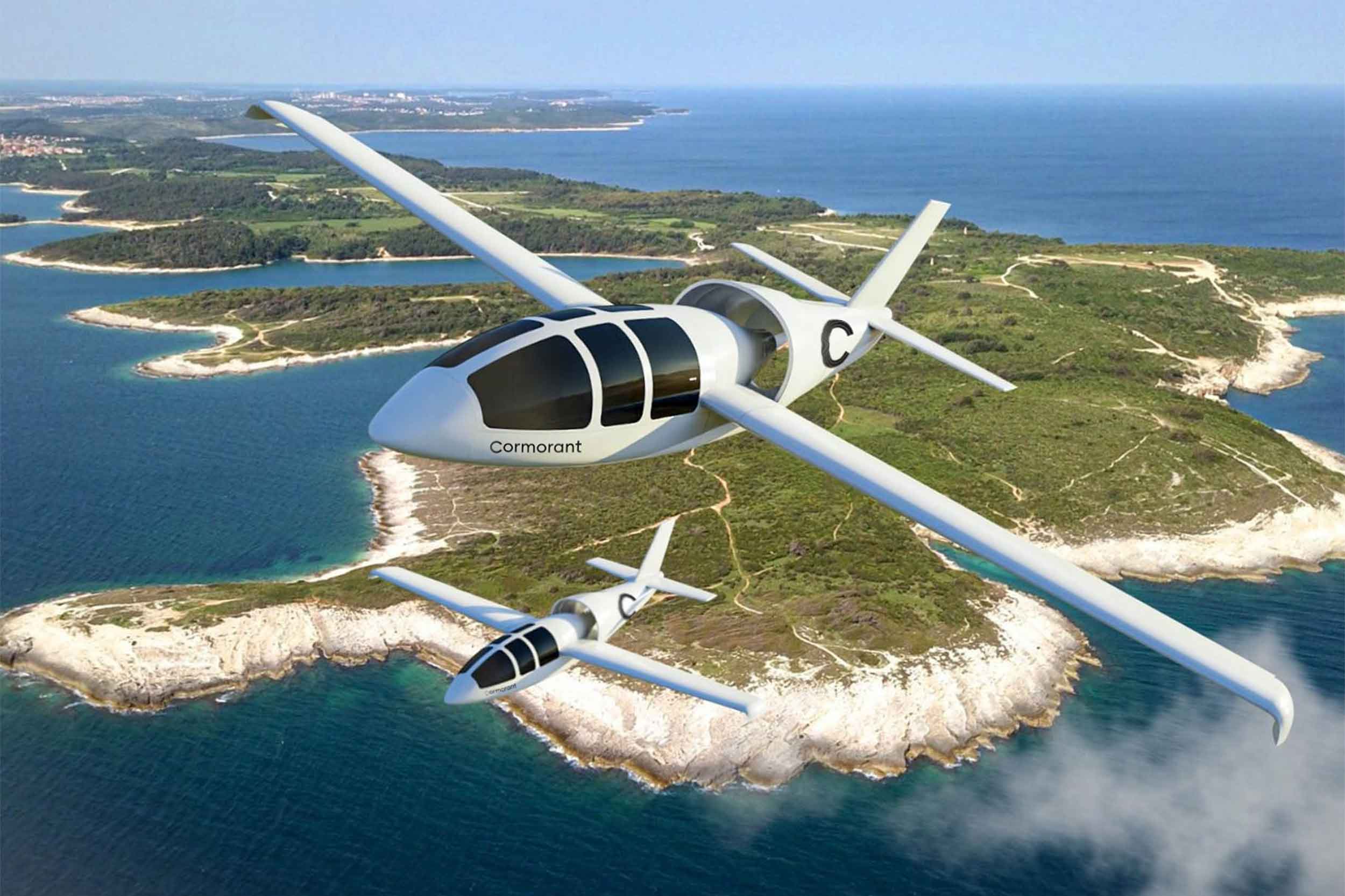
Computer rendering of the Cormorant seaplane
To make the electrical power systems suitable for certification (EASA CS23 Level III), they are designed to be ‘dual energy vector’. That means two energy sources such as batteries combined with a turbogenerator on Sustainable Aviation Fuel (SAF) or with liquid hydrogen fuel cells.
The aircraft seats seven passengers and a pilot and can be converted to air ambulance or cargo transport in minutes, according to Cormorant. The certified flight distance is c. 810 km, with a flight endurance of some 3.75 hours.
Cormorant’s collaboration at Teuge goes beyond just renting hangar space. E-Deck also houses the E-Flight Academy, a flight school operating fully electric aircraft from Pipistrel. The E-Campus will eventually house a variety of shared research facilities, including virtual and augmented reality technology, hybrid and electric aircraft, battery technology, flight simulators, and charging infrastructure.
Teuge International Airport


